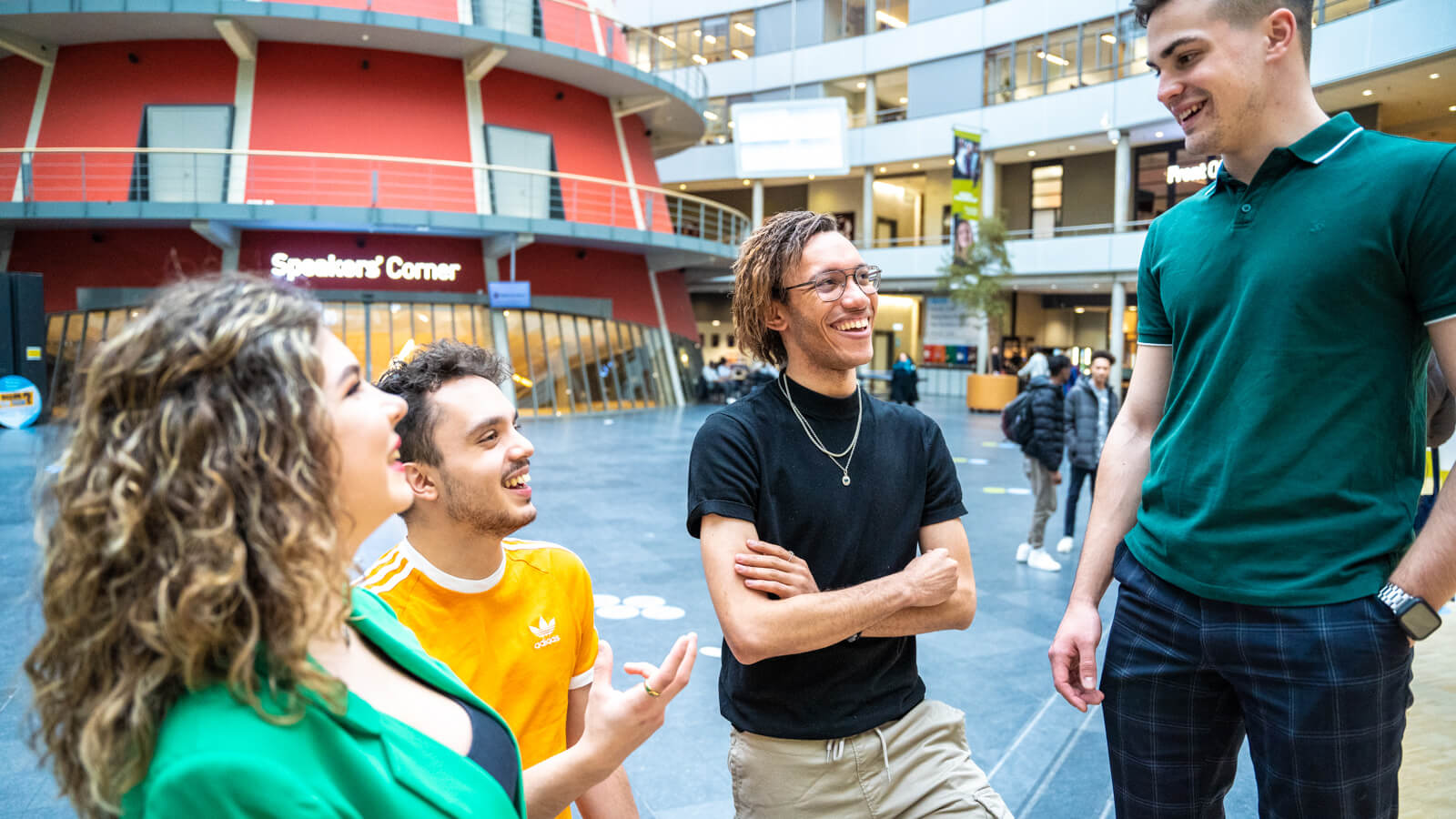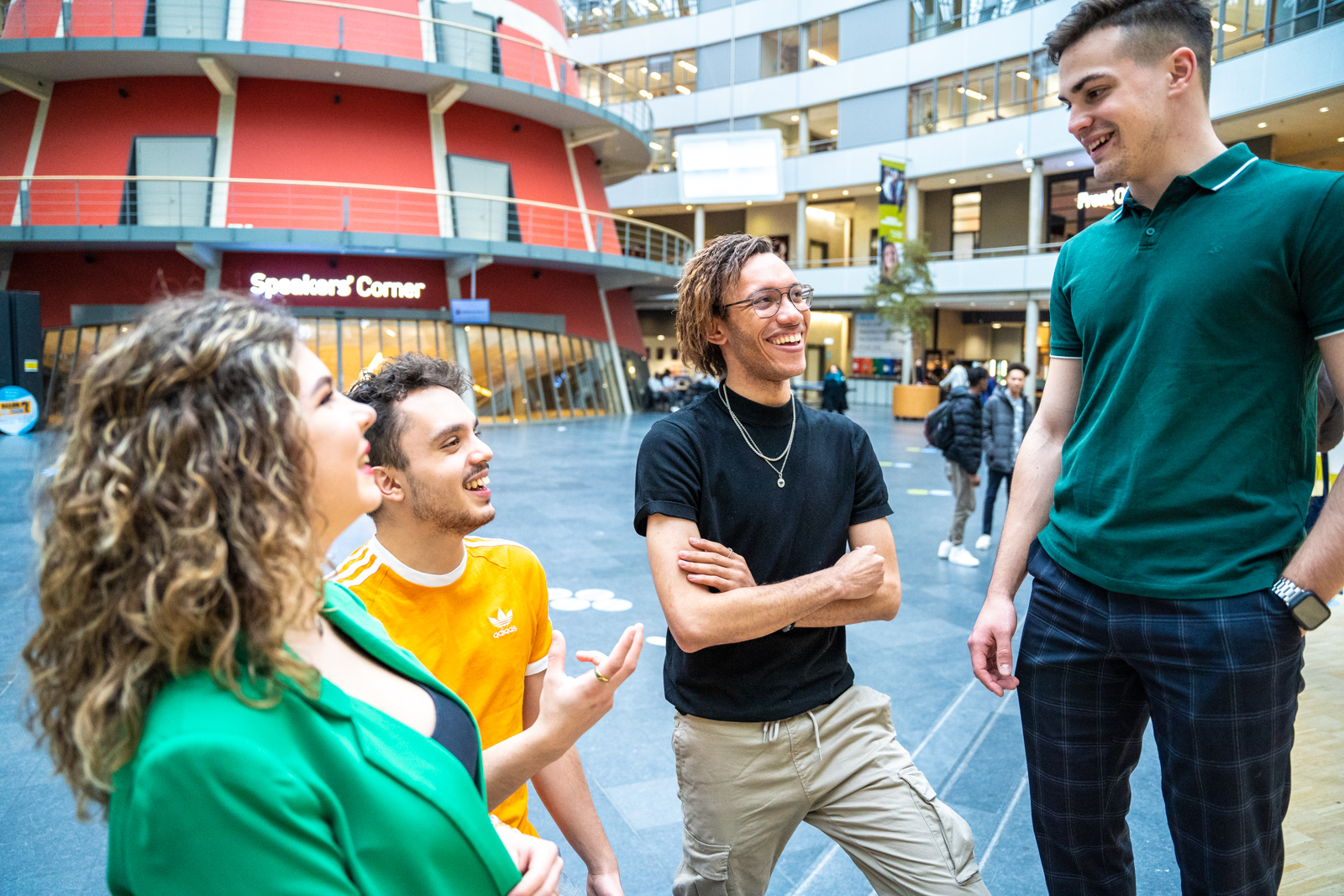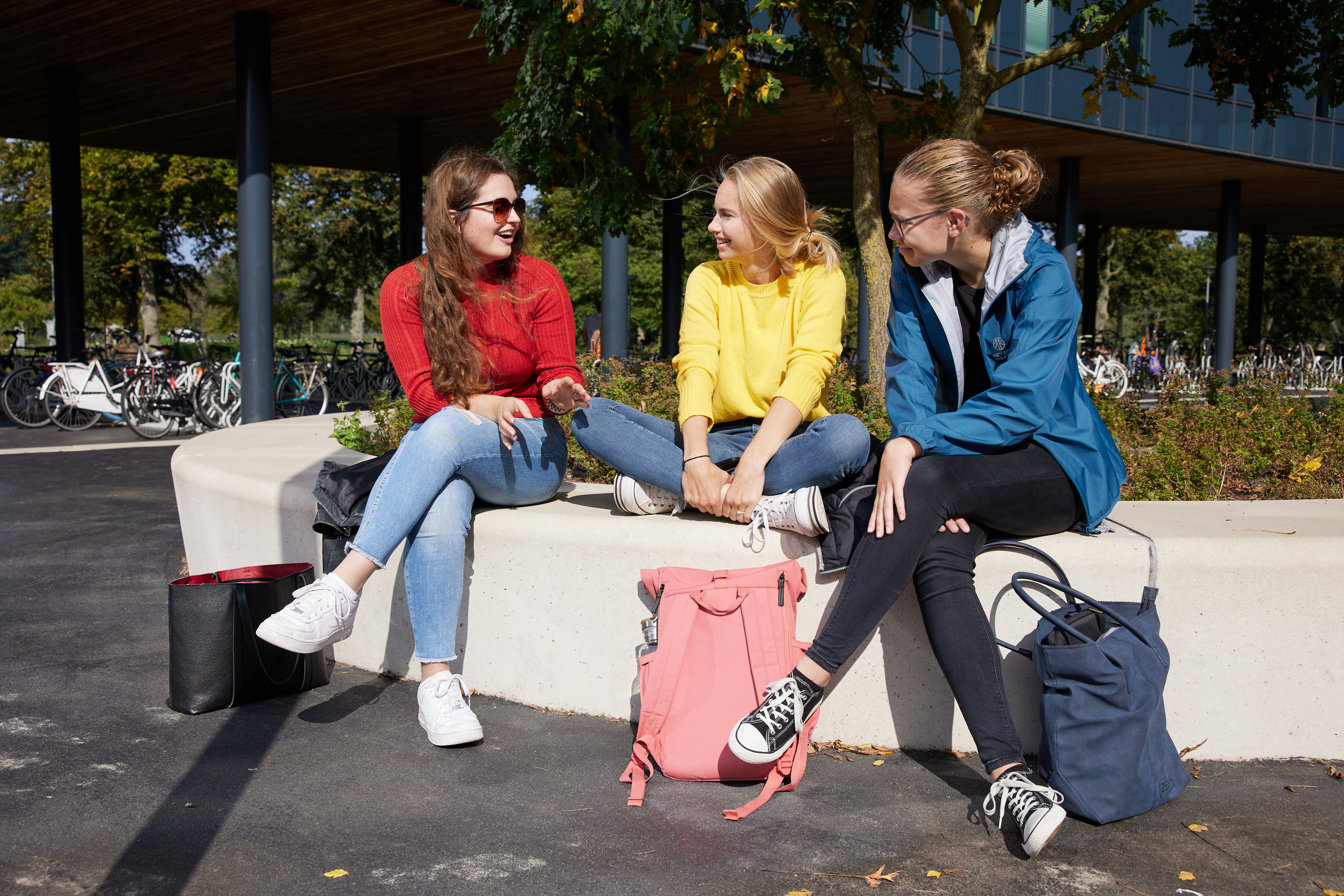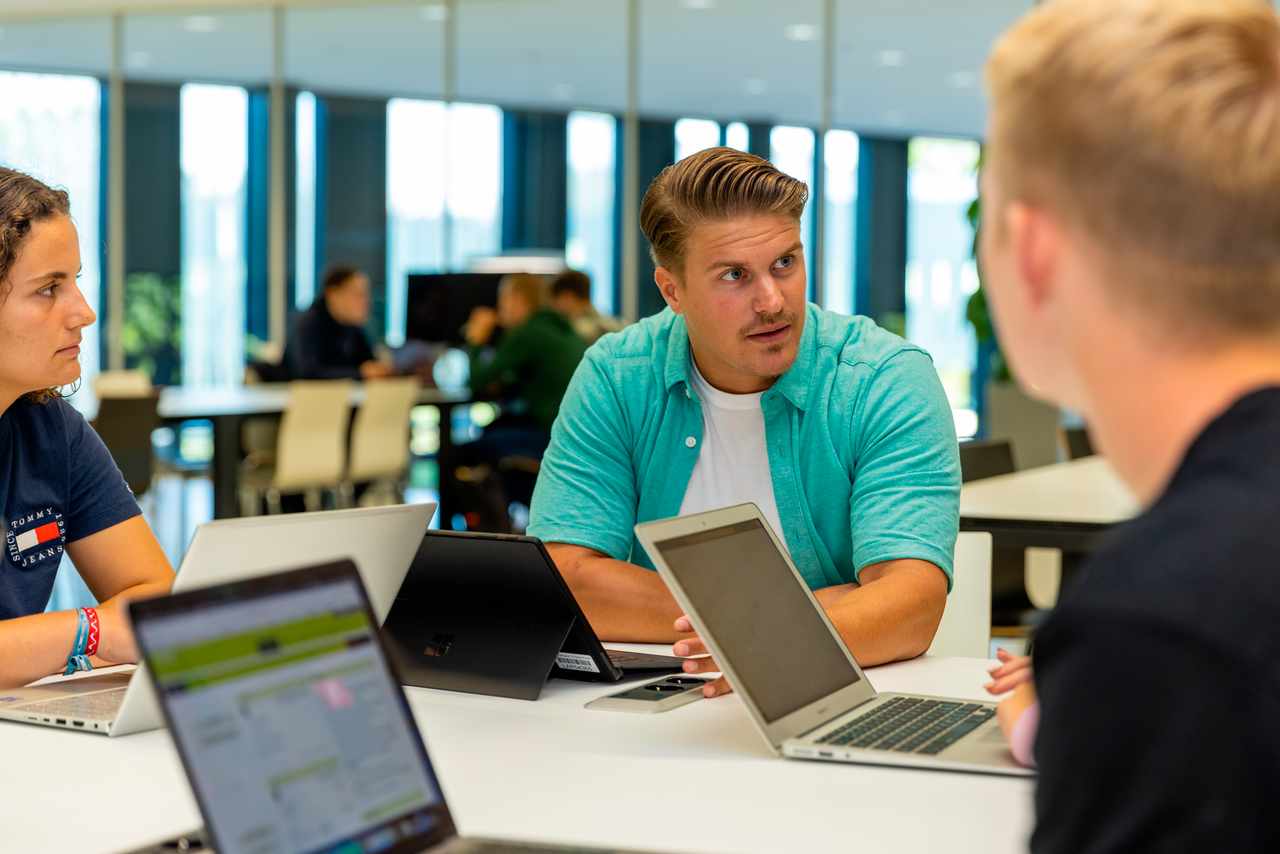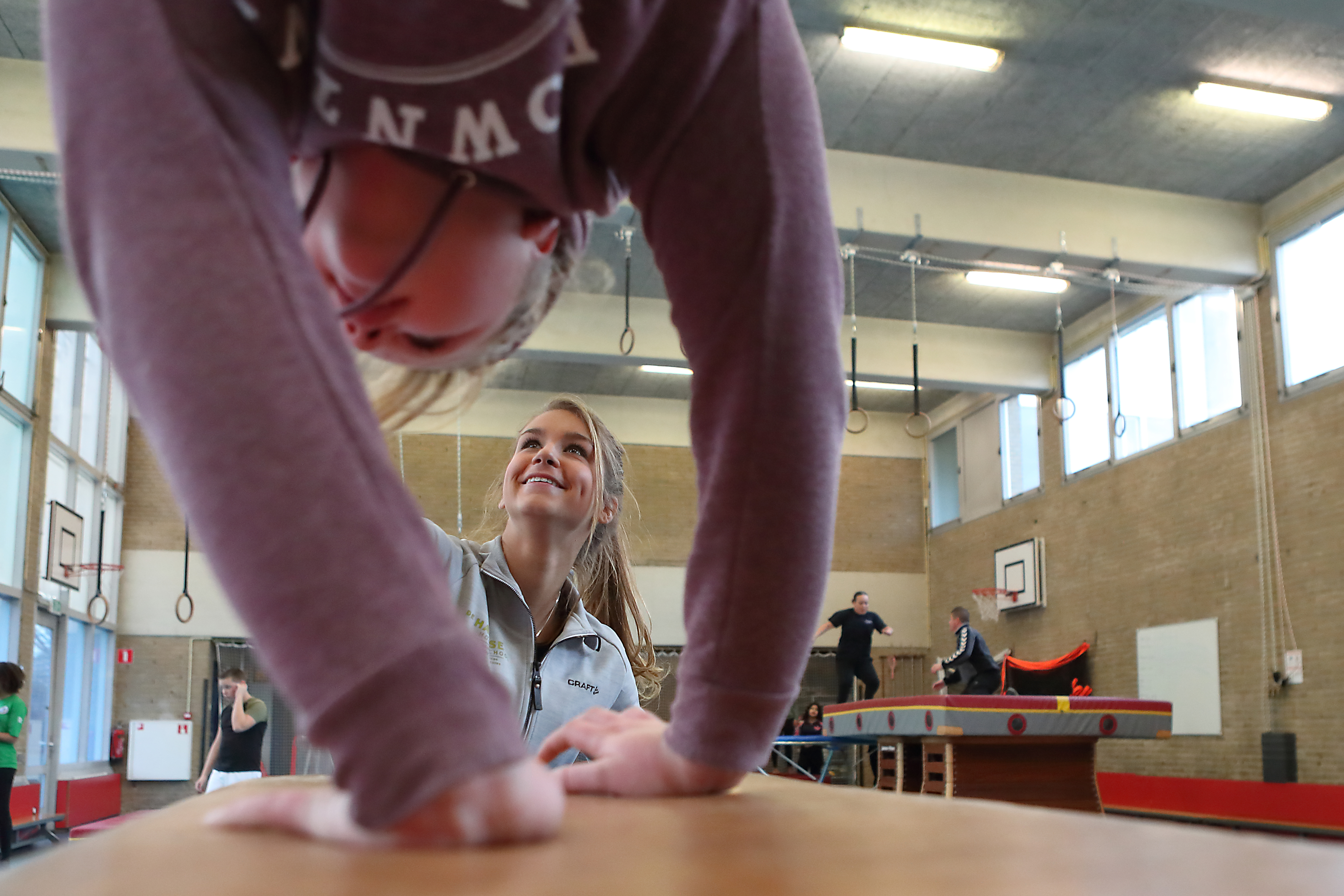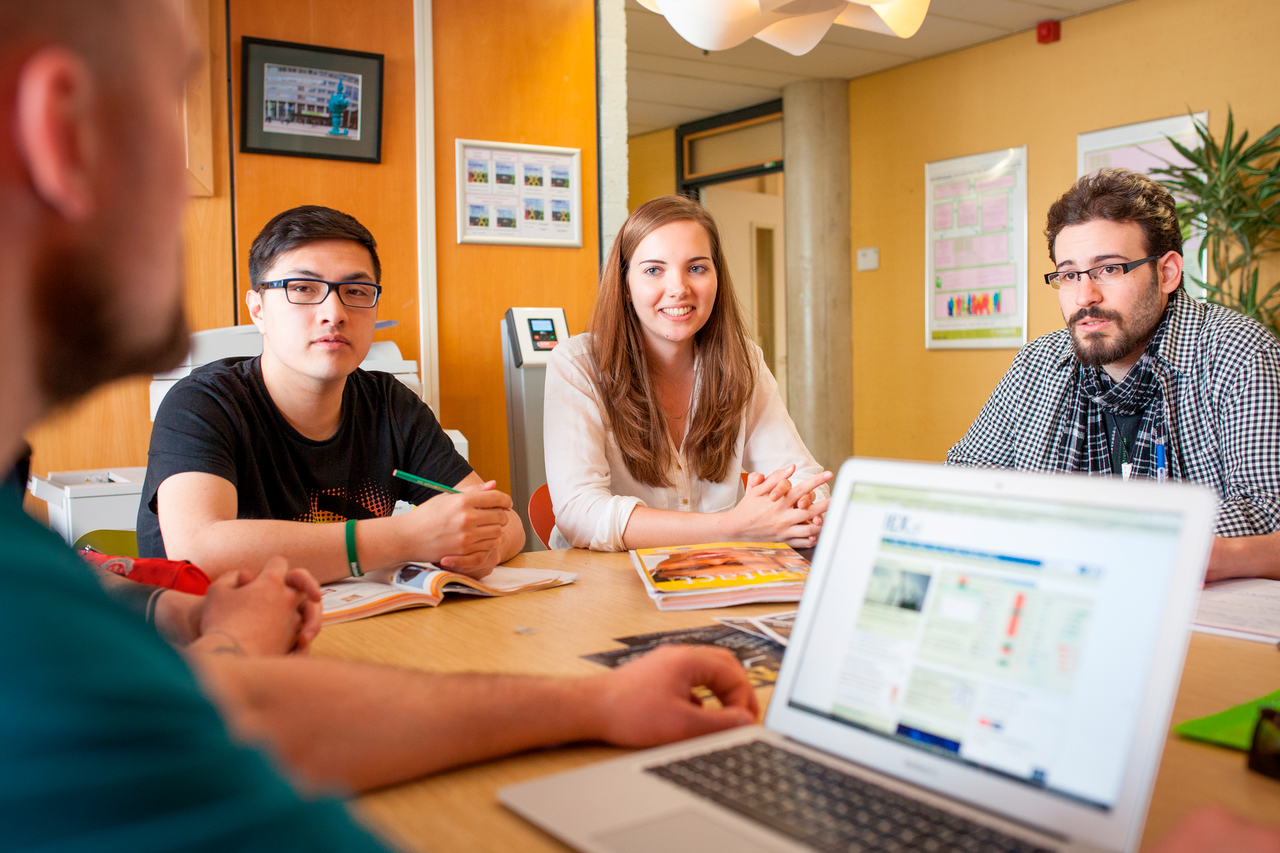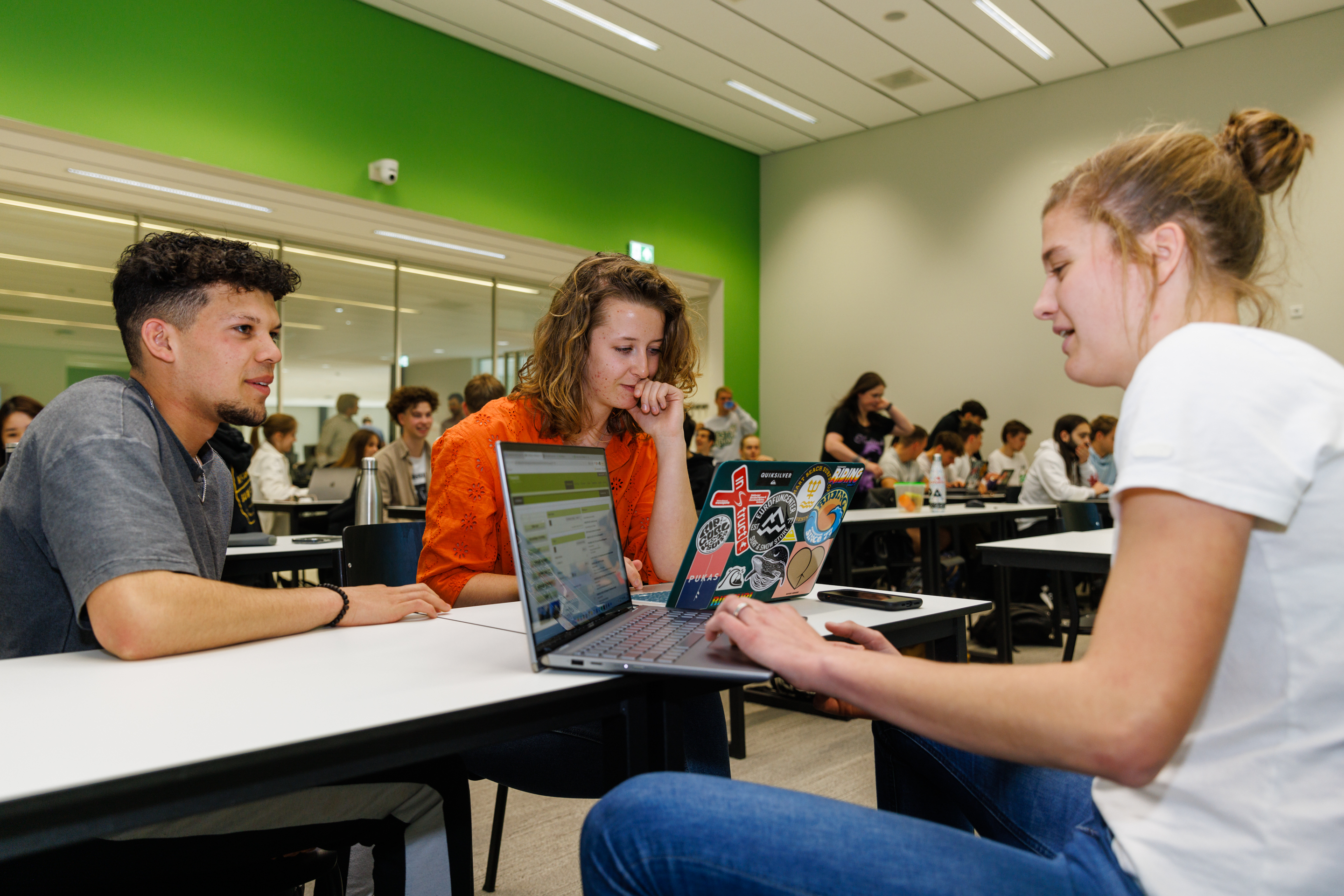
Important deadline! Apply until May 1st for this programme via Studielink. Read more
For you?
Do you have a passion for sports? Are you a team player and love doing business? With the English-language International Sport Management degree programme, you dive into the organisational side of sports. An excellent foundation for a successful career.
Practice your leadership skills, learn critical and business thinking, and explore international sports networks. Kickstart your future in sports!
Admission requirements
Everything about admission
| Preliminary education | Required profile |
|---|---|
| Havo (senior general secondary education) |
|
| VWO (pre-university education) |
|
| MBO (senior secondary vocational education and training) |
|
International Sport Management is a three-year programme. All prospective students should start by applying for enrolment via Studielink. After you apply for the programme, the Enrolment Centre will assess whether or not your previous education allows you to study ISPM at THUAS. If you have any questions regarding your enrolment or application, please contact the Enrolment Office at csi@hhs.nl.
You have a Dutch diploma
To enrol for the ISPM 3-year programme you will need a secondary school diploma comparable to a Dutch VWO diploma and a good command of English. If you are not sure if your program is eligible, please see this page. After your application has been processed, you will be asked to send in a mandatory video answering some questions regarding your motivation towards the programme.
You have a non-Dutch diploma
To enrol for the ISPM 3 year programme you will need a secondary school diploma comparable to a Dutch VWO diploma and a good command of English. Also, an interview is a mandatory part of the application process.
Before we can decide on your eligibility, we’ll need to assess your secondary school certificate.
To make sure your certificate is evaluated fairly, we work with NUFFIC, an organisation that specialises in the assessment of international education qualifications.
Language requirements
If you were not educated in the Netherlands you usually have to submit a language test to be admitted. Depending on the type and country of your diploma you may however qualify for exemption. Please check our entry requirements page for more information.
Don’t meet the entry requirements?
Perhaps your academic background is not quite the right level. Or you need some help improving your English skills. Don’t worry. There might be some alternative options to help you get in, and prepare yourself for a successful start of your studies at The Hague University of Applied Sciences (THUAS).
Admissions Test 21+
If you’re 21 years old before 1 September 2022, but don’t have a diploma or a qualification that meets the entry requirements, you can take the 21+ Admissions Test. The 21+ Admissions Test is offered at several dates between January and the start of the academic year, and consists of a digital general capacity test. Please note that you can only participate if you have an EEA-nationality or residence permit for the Netherlands that is valid on the test date.
English Academic Preparation Programme
Need help with your English? If you haven’t quite reached the right level of English for your chosen Bachelor’s or Master’s degree programme, you can enrol for English Academic Preparation Programme. After the successful completion of this programme, you’ll be ready to start your degree at THUAS and you will already have a good taste of studying and living in the Hague.
The Hague Pathway College
If you’d like to apply for a 3-year bachelor programme but don’t meet the academic entry requirements, you might be interested in joining The Hague Pathway College. This foundation programme has two intakes, one in September and one in January. It offers you the chance to bring your academic level up to the required level and work on your English at an academic level at the same time.Please check www.thehaguepathway.nl for more information.
Want to know more about your enrolment possibilities?
Contact our colleagues at the Enrolment Office at csi@hhs.nl. They are very willing to answer all your questions regarding your enrolment or application.
Decisions regarding your qualification for admission
There can be no exceptions made to the official admission requirements. The Central Student Enrolment Office is the only agency that can arrive at decisions regarding your qualification for admission as based on the official regulations. You cannot rely on any other sources of information with regard to your qualification for admission.
Degree programme content
What will you study each year?
Testimonials from our students
Who better to tell about the degree programme than our own students? They share their experiences here. Some of them are also ready and waiting to answer any questions you may have.
Career perspective
What you will become
Sport Entrepreneur
Sport Journalist
Venue Manager
Sports Marketer
Event Manager
Broadcaster
Sports Development Manager
Coordinator/Manager
Sport Analyst
Sport Economist
Opportunities after graduation
The broad ISPM study programme provides you with a large amount of opportunities:
-
Do local popular sports interest you?
-
What about working with the National Ministry of Sport or the International Olympic Committee?
-
Do you prefer the commercial perspective of a sport marketing agency, sport venue, sport brand, fitness chain or sport game developer?
-
Perhaps you prefer the developmental aspects of foundations and NGOs like Football for Peace, Right to Play or UNICEF.
-
Or maybe your interests are related to worldwide annual events with their own permanent staff like tennis grand slams or city marathons?
The world of International Sport Management truly opens up a world of choice!
Testimonials from our alumni
What lies in store after studying Sport Studies | International Sport Management? Our former students tell us where they ended up and how they look back on their study years.
Practical information
What else do you need to know?
How to apply
Your enrolment request must be submitted through Studielink. Before you do, please check the official name of the programme below. Would you like to find out more about the application process first? Check our page How to apply . The key deadlines are listed here as well. This degree programme starts in September and there is no intake in February.
Tuition fee
You will have to pay tuition fees when you enrol on a bachelor's programme. You can pay in one or more instalments. If you pay in more than one instalment a small administration fee is charged.
More information about tuition fees
Scholarships
Find out more about scholarships for international students. Please note that these scholarships are one-off scholarships only, meaning that if you obtain them it is only for your first year of study.
Student finance
Dutch students qualify for extra financial support via a loan. Dutch students automatically qualify for this financial assistance and international students may be eligible if they have lived in the Netherlands for at least five years or are employed for at least 56 hours per month.
Additional Costs
You must also budget for books, excursions and field trips. You can expect to pay approximately €800 per year to cover these additional costs. During your semester abroad, you will also need to pay for tickets, housing and insurance.
Visa and residence permit
Help in choosing your study
We would like to help you make the right decision
It takes a bit of thought and research to find the right programme. The Hague University of Applied Sciences organizes various activities throughout the year to give you the best possible idea of the various studies offered. You also learn what it’s like to study at THUAS. This way, you can click on the registration button without a doubt in mind. Or you’ll know for certain it’s not right for you.
Walk in at our Study & Career Centre for…
Assistance during your studies
Study coaching and advice
If needed, a personal supervisor can help you keep track of your study progress and further guide your career development. He or she will also support you if you have any personal problems that can adversely affect your schoolwork. Furthermore, a coaching assistant − usually a second- or third year student− can also tutor you. He or she can assist you with the day‐to‐day practicalities of studying International Sport Management. By improving your time-management skills for example, or finding the right people within the programme to answer more complicated questions. For more information about student counsellors/student psychologists, high-performance sports.
Official details of the programme
This degree programme is registered in the Central Register of Higher Education Programmes (CROHO) as follows:
Official Dutch name of degree programme: Sportkunde
Official international name: Sport Studies
Programme code (Isat): 34040
Institution code (Brin): 27UM
Both the official Dutch and the official international name of the degree programme (current at the time of your graduation) will be printed on your diploma.
For more information on the accreditation of this degree programme, see the website for the Accreditation Organisation of the Netherlands and Flanders (NVAO).
Downloads
Bindend studieadvies (BSA)
To continue your degree programme after the first year, you need to earn 50 of the 60 credits (EC or Credits). In some cases, the degree programme may also require that you pass a specific subject as European art of the credit requirements. We call this a qualitative requirement. If you meet the credit requirements as well as the qualitative requirement where applicable, you will receive a positive binding study advice (BSA) from the Examination Board at the end of your first year and you will be able to continue your degree programme.
If you earn less than 50 credits or don’t meet the qualitative requirements where applicable, you will receive a negative binding study advice and will have to leave the degree programme. This is why this advice is called a Negative Binding Study Advice (NBSA).
Your academic progress may be affected by personal circumstances such as illness or the professional practice of a sport. It is important that you inform the Examination Board immediately of any personal circumstances that might apply to you. The Board can take these into account when issuing its study advice.
Read all the rules for the binding study advice in Chapter 7 of the Programme and Examination Regulations (PER) for your degree programme.
Looking for a different degree programme?
You might find these programmes interesting too!
